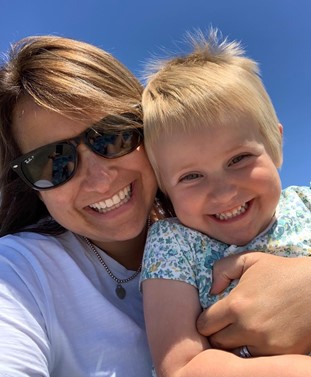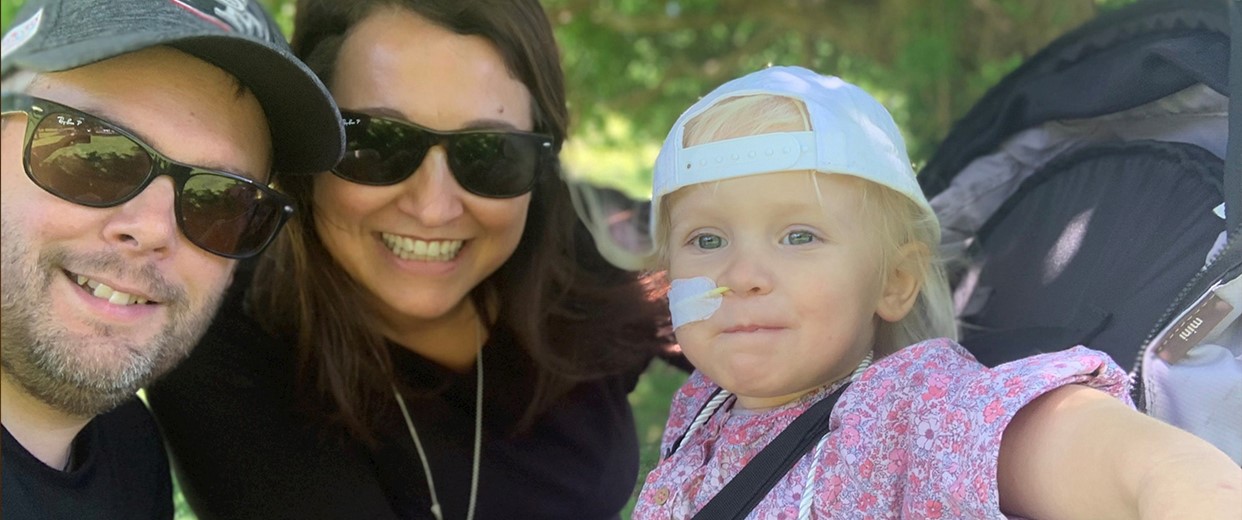The Balancing Act is a Tribe series on juggling work with something a little extra. In our third and final part, we talk about work and parenting. We speak to our head of business and admin support, Cathi Thomson, who has a remarkable story to share.
![]()
Cathi Thomson starts our conversation by saying, “I’ll try not to cry”, but it becomes obvious over the next half hour that she is one strong woman. Six weeks into a new role at Tribe Recruitment last year, Cathi and her husband, Fraser, got the shocking news that their daughter, Addie, had leukemia.
“It was a week before Addie turned two and ironically, Friday the 13th,” Cathi says.
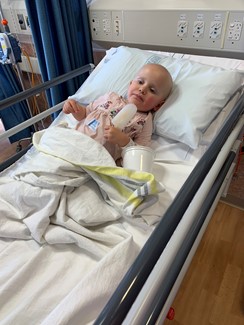
Addie had been sick and lethargic in the weeks prior to her diagnosis. On her fourth trip to the doctor, Fraser was told she looked anemic and to go straight to
Waitakere Hospital. There the Thomsons were thrown into medical treatments and chemotherapy cycles, where one small hospital room became their world.
Reflecting on it now, Cathi says the first thing she felt was overwhelming panic.
“It was so unknown and I didn’t know what I was getting into,” she says.
Adding to the uncertainty was Cathi’s new role as head of the business and admin support team. Because of Addie’s age, she wasn’t able to be left alone at the hospital. Cathi met with Tribe’s chiefs, Jenny and Emma, intending to call it a day. Before she got the chance to however, the pair told her once a Tribe member, always a Tribe member.
“I was completely vulnerable, hadn’t slept for days and didn’t know what was going on,” Cathi says, “Jenny and Emma were incredible.”
The conversation gave Cathi hope that perhaps she could balance this new world with work.
“I thought maybe I didn’t have to sacrifice what’s important to me because it actually might be helpful to have something to take my mind off it and refill my cup a bit.”
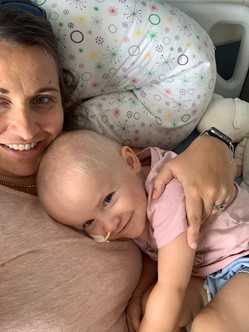
Cathi’s honesty about how important work is to her and Fraser is refreshing. Before Addie was sick, they “intentionally overcompensated” on support and had more hands on deck than they perhaps needed. It meant any guilt was kept at bay because Cathi had the space to focus on work when there and not feel rushed or stressed when getting home.
“It made me calmer, my husband calmer, Addie happy and the time that we had together was engaging and valued.”
Cathi says their style of parenting is very much 50/50 and doesn’t conform to gender norms - Fraser does the washing and she will mow the lawns. They agreed prior to Addie’s arrival that their jobs were equally as important and any emergencies, sick days or unexpected day care pickups would be a turn about.
After a month off to support Addie and prepare for possible outcomes, Cathi returned to the office two days a week. Being visibly there was important to Cathi so she didn’t feel forgotten or awkward around the workplace and vice versa, particularly for her new team. It also meant changing her expectations of being organised.
“Usually I’m a short, medium and long-term person, I’m used to being planned and having structure but I had to rein in my brain and learn to take it week by week.”
Fraser was able to keep his full-time hours and work from the hospital, while going into the office three days a week. It meant the pair could still feel connected to their teams and have conversations that weren't centred on cancer treatments or medical drugs. Tribe suggested non-client facing work and strategy planning so there was no time pressure. While there were times she felt guilty, Cathi had both her mum and husband’s backing and knew she was doing it for the right reasons.
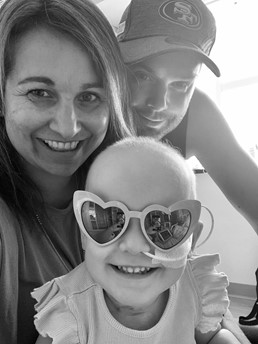
“It was so important for me to have something else to focus on otherwise I think I would’ve gone demented in the hospital room all the time.”
"Be real, get it off your chest"
Support the family received still blows Cathi away. It’s the only time she does actually tear up while sharing her story. Throughout the eight-month hospital stay, family and friends in New Zealand and back home in the UK were kept updated via a Facebook page. Not normally a “sharer”, the page ended up being incredibly cathartic and helped Cathi deal with her emotions. She says talking about it helped others feel comfortable and know that it wasn’t off limits.
“Be real, get it off your chest,” she says, “people are just human, if you open up and are vulnerable then they’ll support you.”
On the flip side, it’s also given Cathi a deeper sense of empathy for people who aren’t equipped to deal with such challenges. She’s found the different levels of support and reactions interesting and at times, surprising, but has realised that everyone has their own reasons. Comparing situations riles Cathi, who says the biggest lesson they’ve learned is that everyone’s journey is unique to them.
“I will now never say to anyone that I know what it’s like or that I understand because everybody responds differently.”
Addie has now been in remission since April. Her blood count continues to be checked every six weeks but she’s enjoying her new routine back at daycare. Cathi is preparing to go back to Tribe full time, with flexible hours and working from home as needed. She’s slowly readjusting to balancing life, parenting and work again. The Thomsons’s have also discovered their cheeky and determined toddler has a vocabulary to rival kids twice her age.
“She was in a room with adults talking about her for eight months so her vocabulary is extensive, probably more than what you would want a three-year-old to have,” Cathi says.
While there are two tricky years ahead to navigate, where the relapse rate is around 60 percent, Cathi says she sits here and thinks how lucky she actually feels.